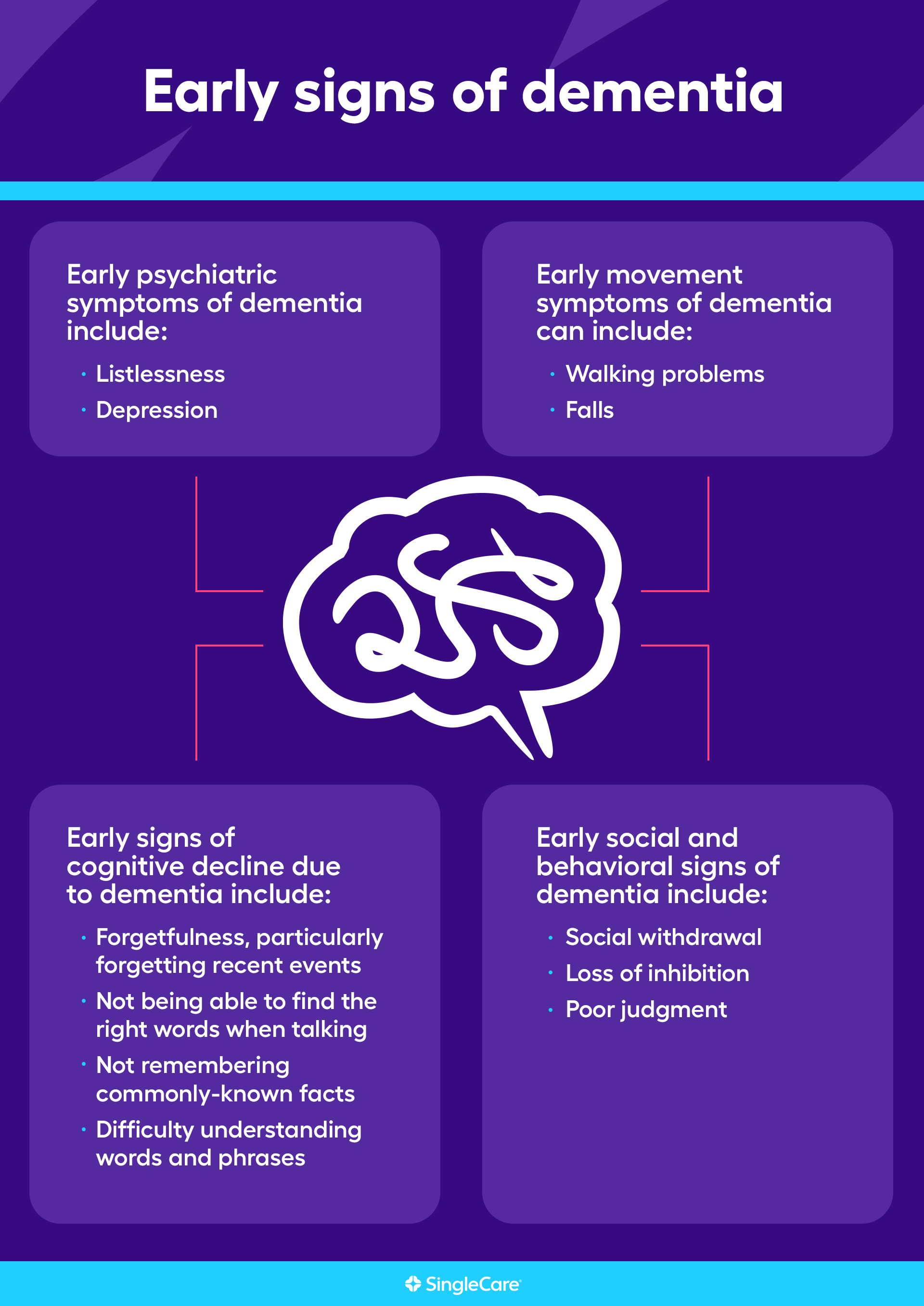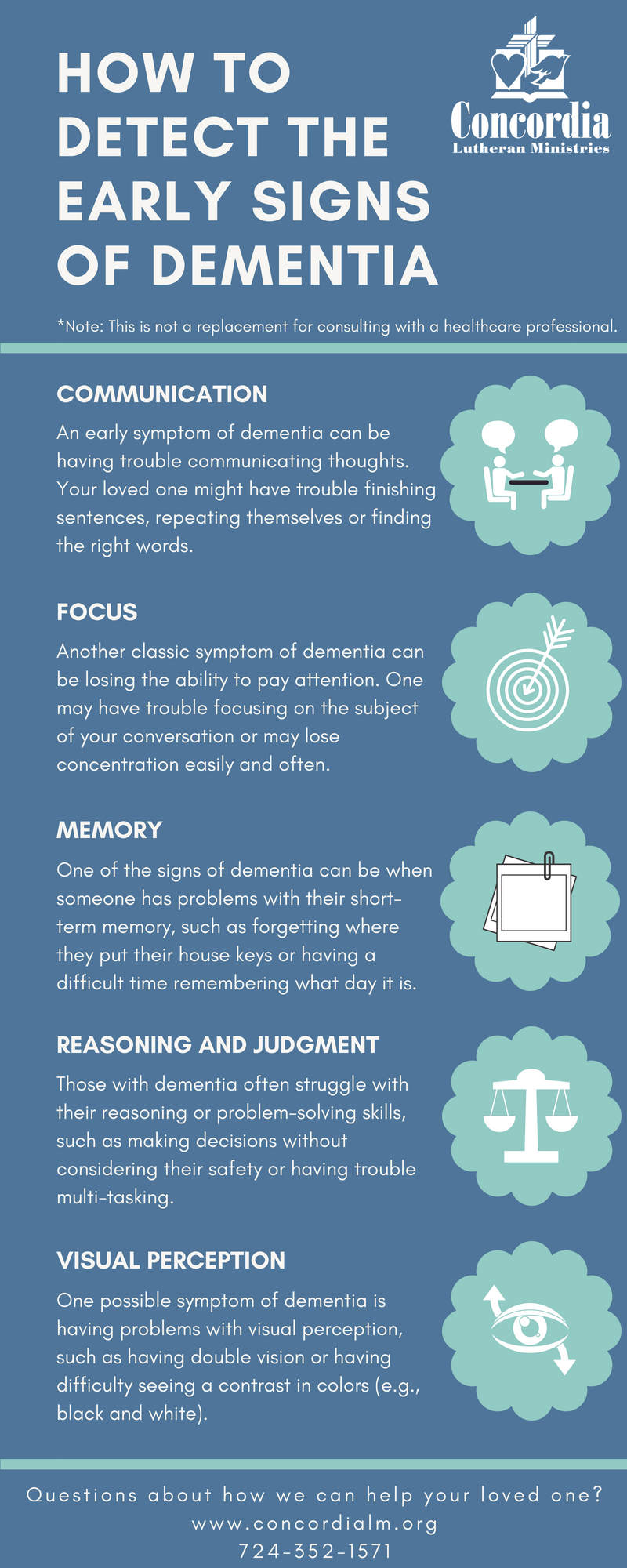Best Home Modifications to Reduce Fall Risk for Loved Ones
Wiki Article
Understanding the Effect of Dementia on Every Day Life and Caregiving
Mental deterioration impacts everyday life in extensive ways, affecting not simply those detected but also their caregivers. As cognitive decrease proceeds, you may notice adjustments in communication and regular that obstacle both parties.The Phases of Mental Deterioration and Their Effects on Every Day Life
As you browse the journey of mental deterioration, recognizing its phases can significantly affect how you manage daily life. Dementia usually advances through three main phases: early, middle, and late.During the center stage, you'll experience a lot more obvious cognitive decrease. Daily tasks might become tough, and keeping your self-reliance may need modifications. Utilizing reminders and streamlining your setting can aid.
In the late stage, people frequently need significant support with daily tasks. Planning for care comes to be crucial, concentrating on comfort and quality of life. By understanding these phases, you're much better outfitted to respond proactively, ensuring you or your enjoyed one can navigate the obstacles with dignity and elegance.

Adjustments in Communication and Social Interaction
How do changes in interaction affect your day-to-day interactions as mental deterioration proceeds? As mental deterioration advancements, you may discover that easy conversations become tough. Words might leave you, or you may battle to discover the best expressions. This can result in stress for both you and your loved ones. Nonverbal cues, like gestures or faces, end up being progressively vital.You might discover it simpler to link with these ways instead of relying solely on talked language. Listening abilities can likewise alter; you might locate it tougher to adhere to conversations or bear in mind what was just claimed (Vascular Dementia). This can bring about misconceptions or sensations of isolation
Urging perseverance and producing an encouraging environment can assist. Taking part in activities that promote link, like music or art, can improve social interactions. Bear in mind, maintaining partnerships is still feasible; it's practically adapting to new methods of connecting.
Influence On Daily Routines and Activities
While maneuvering daily routines, you'll likely notice that tasks you when finished easily ended up being a lot more tough as mental deterioration advances. You may locate on your own neglecting actions in acquainted routines or having a hard time to remember where you placed things.Preparation your day can really feel frustrating, making it tougher to adhere to a routine. You may need pointers for appointments or to take medications. Adapting your setting can assist; for example, identifying items or making use of checklists can streamline tasks. Engaging in repeated, structured tasks can likewise supply comfort and a sense of accomplishment. Bear in mind, it's fine to ask for help. Bordering on your own with helpful close friends or household can make managing these adjustments a little bit simpler.
Behavioral and emotional Challenges
Guiding through day-to-day regimens can cause not simply useful obstacles, but behavior and likewise emotional ones. You may notice modifications in state of mind, such as increased anxiety or frustration, which can stem from complication or problem in finishing jobs. As you navigate these moments, it is important to recognize that your loved one may share their feelings with behaviors like anxiety or withdrawal.These psychological responses can be unpredictable and may arise without warning, leaving you both feeling bewildered. You might locate that familiar atmospheres or routines can help in reducing stress and anxiety, but keeping perseverance becomes significant. It is essential to confirm their sensations, even if you don't totally comprehend them.
The Function of Caregivers in Sustaining People With Dementia
As a caretaker, you play an important duty in giving emotional support for people with mental deterioration. Developing everyday care routines can create a sense of stability and comfort, helping to reduce their anxiousness. By recognizing their needs and making use of efficient techniques, you can greatly improve their lifestyle.Emotional Support Strategies
When looking after a person with mental deterioration, understanding the psychological landscape is essential for providing efficient assistance. You'll typically locate that perseverance and compassion go a long means. Confirm their feelings; if they reveal complication or irritation, recognize it without dismissing their emotions. Easy motions, like holding their hand or keeping eye get in touch with, can develop a complacency. Attempt to take part in activities that they delight in, as you can try here this can stimulate delight and link. Remember to connect plainly and slowly, making use of a calm tone. Urge expression with music or art, which can serve as an effective outlet. Inevitably, don't neglect to deal with your own psychological requirements; looking for assistance on your own can boost your capability to take care of them.Daily Care Routines
Developing everyday treatment routines is crucial for offering security and convenience to individuals with dementia, as these routines can aid decrease complication and anxiety. You can start by laying out a constant timetable for meals, tasks, and rest. This predictability assists your enjoyed one feel much more safe and secure and engaged.
Incorporate familiar jobs, like folding laundry or watering plants, which can evoke favorable memories and cultivate a sense of achievement. Usage aesthetic signs, such as calendars or lists, to guide them with the day.
Be versatile, though; adjust regimens as required based on their state of mind or power degrees. Fall Risk. Keep in mind, your perseverance and understanding are vital in maneuvering their changing needs, ensuring they feel supported and valued throughout their day-to-day live
Developing a Safe and Comfy Living Environment
Creating a risk-free and comfortable living atmosphere is vital for people with dementia. You'll desire to make home safety and security adjustments that lower risks and assure experience to provide a sense of comfort. By focusing on these elements, you can aid create an area that supports both safety and wellness.Home Security Modifications
As you navigate the challenges of mental deterioration, making home safety and security alterations can substantially improve comfort and protection. Beginning by getting rid of tripping dangers like rugs and straight from the source clutter, assuring walkways are clear. Set up grab bars in shower rooms and non-slip mats in the shower to avoid falls. Think about making use of brighter lights and evening lights to boost presence, particularly during nighttime. Tag vital locations, such as the shower room and kitchen, with clear signs to aid with positioning. Protect any kind of sharp items or harmful compounds unreachable. Additionally, examine your home's alarm systems and locks to verify they're straightforward and give comfort. These adjustments not just advertise you could try here security yet also motivate independence, permitting your enjoyed one to really feel even more secure in their setting.Convenience and Knowledge
After making sure a safe atmosphere with needed alterations, promoting comfort and familiarity is essential for individuals with mental deterioration. Maintain a consistent routine to assist them really feel grounded and minimize stress and anxiety. Engaging in familiar activities, such as listening to songs or gardening, can boost their feeling of belonging, making their living environment a true shelter.Techniques for Reliable Caregiving and Support
While maneuvering the obstacles of mental deterioration treatment can really feel frustrating, carrying out reliable approaches can significantly boost both the caretaker's and the person's everyday experience. Beginning by establishing a regimen; predictability helps in reducing anxiety for both you and your enjoyed one. Use clear, basic interaction-- direct questions and brief sentences can prevent confusion.
Don't neglect to look after on your own; schedule breaks and connect with support system. Sharing experiences with others in similar situations can provide beneficial insights and emotional alleviation.
Finally, remain patient and flexible. Dementia can bring uncertain modifications, so adapting your technique is crucial. By utilizing these techniques, you can foster a much more positive setting that benefits both you and your liked one.
Often Asked Inquiries

What Are the Different Sorts Of Dementia?
You'll locate numerous kinds of mental deterioration, consisting of Alzheimer's, vascular dementia, Lewy body mental deterioration, and frontotemporal dementia. Each type affects memory and cognitive function differently, so understanding the differences is important for appropriate medical diagnosis and care.How Can I Help A Person With Early-Stage Mental Deterioration?
You can assist someone with early-stage dementia by being person, using assistance, and motivating them to engage in tasks they take pleasure in. Keeping routines regular and preserving open communication can also make a significant distinction in their every day life.Are There Financial Resources Available for Mental Deterioration Care?
Yes, there are funds offered for dementia care. You can explore federal government help programs, nonprofit companies, and insurance coverage options. It's additionally smart to speak with regional firms for certain resources customized to your circumstance.What Lawful Factors To Consider Should Caregivers Know?
As a caretaker, you ought to think about power of attorney, health care proxies, and guardianship laws. It's necessary to recognize the legal civil liberties and obligations you hold, guaranteeing your liked one gets appropriate treatment and defense.Exactly How Can I Manage Caregiver Stress And Anxiety?
You can handle caretaker anxiety by prioritizing self-care, looking for assistance from teams or friends, setting realistic assumptions, taking breaks, and exercising leisure strategies. Remember, your wellness matters just as high as the individual you're caring for.Comprehending the Influence of Mental Deterioration on Daily Life and Caregiving.
As you navigate the journey of mental deterioration, recognizing its phases can noticeably influence how you manage everyday life.While maneuvering everyday routines, you'll likely notice that tasks you when completed easily come to be extra challenging as dementia advances.Developing day-to-day treatment regimens is vital for supplying security and convenience to people with mental deterioration, as these routines can assist lower complication and anxiousness.While steering the challenges of dementia care can really feel frustrating, implementing effective approaches can significantly enhance both the caregiver's and the client's everyday experience.
Report this wiki page